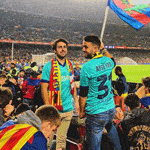A PHP Error was encountered
Severity: Notice
Message: Trying to get property of non-object
Filename: views/blogdetail.php
Line Number: 62
Backtrace:
File: /home/mn47w72oq8g2/public_html/application/modules/home/views/blogdetail.php
Line: 62
Function: _error_handler
File: /home/mn47w72oq8g2/public_html/application/third_party/MX/Loader.php
Line: 357
Function: include
File: /home/mn47w72oq8g2/public_html/application/third_party/MX/Loader.php
Line: 300
Function: _ci_load
File: /home/mn47w72oq8g2/public_html/application/libraries/Layouts.php
Line: 139
Function: view
File: /home/mn47w72oq8g2/public_html/application/modules/home/controllers/Home.php
Line: 124
Function: front_view
File: /home/mn47w72oq8g2/public_html/index.php
Line: 315
Function: require_once
01 January1970
A PHP Error was encountered
Severity: Notice
Message: Trying to get property of non-object
Filename: views/blogdetail.php
Line Number: 62
Backtrace:
File: /home/mn47w72oq8g2/public_html/application/modules/home/views/blogdetail.php
Line: 62
Function: _error_handler
File: /home/mn47w72oq8g2/public_html/application/third_party/MX/Loader.php
Line: 357
Function: include
File: /home/mn47w72oq8g2/public_html/application/third_party/MX/Loader.php
Line: 300
Function: _ci_load
File: /home/mn47w72oq8g2/public_html/application/libraries/Layouts.php
Line: 139
Function: view
File: /home/mn47w72oq8g2/public_html/application/modules/home/controllers/Home.php
Line: 124
Function: front_view
File: /home/mn47w72oq8g2/public_html/index.php
Line: 315
Function: require_once
Severity: Notice Message: Trying to get property of non-object Filename: views/blogdetail.php Line Number: 66 Backtrace:
File: /home/mn47w72oq8g2/public_html/application/modules/home/views/blogdetail.php
File: /home/mn47w72oq8g2/public_html/application/third_party/MX/Loader.php
File: /home/mn47w72oq8g2/public_html/application/third_party/MX/Loader.php
File: /home/mn47w72oq8g2/public_html/application/libraries/Layouts.php
File: /home/mn47w72oq8g2/public_html/application/modules/home/controllers/Home.php
File: /home/mn47w72oq8g2/public_html/index.phpA PHP Error was encountered
Line: 66
Function: _error_handler
Line: 357
Function: include
Line: 300
Function: _ci_load
Line: 139
Function: view
Line: 124
Function: front_view
Line: 315
Function: require_once
A PHP Error was encountered
Severity: Notice
Message: Trying to get property of non-object
Filename: views/blogdetail.php
Line Number: 67
Backtrace:
File: /home/mn47w72oq8g2/public_html/application/modules/home/views/blogdetail.php
Line: 67
Function: _error_handler
File: /home/mn47w72oq8g2/public_html/application/third_party/MX/Loader.php
Line: 357
Function: include
File: /home/mn47w72oq8g2/public_html/application/third_party/MX/Loader.php
Line: 300
Function: _ci_load
File: /home/mn47w72oq8g2/public_html/application/libraries/Layouts.php
Line: 139
Function: view
File: /home/mn47w72oq8g2/public_html/application/modules/home/controllers/Home.php
Line: 124
Function: front_view
File: /home/mn47w72oq8g2/public_html/index.php
Line: 315
Function: require_once










